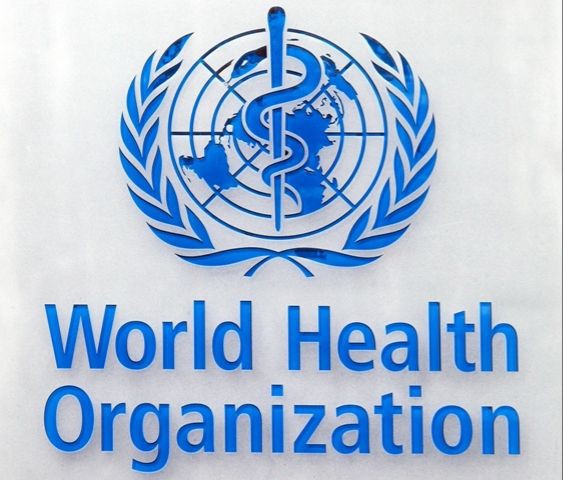
Hepatitis Infections Kill 3500 People Each Day – WHO

The World Health Organisation (WHO) announced on Tuesday that viral hepatitis infections stand as the second leading infectious cause of death globally, resulting in 1.3 million deaths annually, matching the toll of tuberculosis, another major infectious killer.
This revelation was made in the 2024 Global Hepatitis Reports, unveiled at the World Hepatitis Summit (WHS) from April 9 to 11, 2024, in Lisbon, Portugal, under the theme “Integrate Accelerate Eliminate.” The WHS is a global meeting to advance the viral hepatitis agenda and provide a platform for a broad hepatitis community to take stock of progress and share experiences and best practices in reaching and validating viral hepatitis elimination.
Hepatitis, an inflammation of the liver caused by various infectious viruses and non-infectious agents, poses a significant health threat, often leading to fatal outcomes. According to the WHO, the five primary strains of the hepatitis virus, labelled as types A, B, C, D, and E, each present distinct characteristics, including modes of transmission, the severity of illness, geographical prevalence, and preventive measures.
The health body further disclosed that its African region bears 63 per cent of new hepatitis B infections, out of which only 18 per cent of newborns in the area receive the hepatitis B birth vaccination dose.
“In the Western Pacific Region, which accounts for 47 per cent of hepatitis B deaths, treatment coverage stands at 23 per cent among people diagnosed, which is far too low to reduce mortality.
“Bangladesh, China, Ethiopia, India, Indonesia, Nigeria, Pakistan, the Philippines, the Russian Federation, and Vietnam collectively shoulder nearly two-thirds of the global burden of hepatitis B and C.
“Achieving universal access to prevention, diagnosis, and treatment in these ten countries by 2025, alongside intensified efforts in the African Region, is essential to get the global response back on track to meet the Sustainable Development Goals,” it said, stating that the number of lives lost due to viral hepatitis is increasing as the infections claim 3,500 lives every day.
The WHO report also highlighted that despite advancements in diagnosis and treatment tools, along with decreasing product costs, coverage rates for testing and treatment have plateaued, contributing to the rising death toll of viral hepatitis infections.
New data from 187 countries show that the estimated number of deaths from viral hepatitis increased from 1.1 million in 2019 to 1.3 million in 2022. Of these, 83 per cent were caused by hepatitis B, and 17 per cent by hepatitis C. Every day, 3,500 people are dying globally due to hepatitis B and C infections, it noted.
The WHO Director-General, Dr Terror Ghebreyesus, emphasised the need to reverse the rising trend in hepatitis-related deaths by expanding diagnosis and treatment access globally.
He said:
This report paints a troubling picture: despite progress globally in preventing hepatitis infections, deaths are rising because far too few people with hepatitis are being diagnosed and treated.
WHO is committed to supporting countries to use all the tools at their disposal – at access prices – to save lives and turn this trend around.
Updated WHO estimates showed that 254 million people live with hepatitis B, while 50 million have hepatitis C infections, with a significant burden borne by individuals aged 30–54, particularly men.
“New incidence estimates indicate a slight decrease compared to 2019, but the overall incidence of viral hepatitis remains high. In 2022, there were 2.2 million new infections, down from 2.5 million in 2019.
“These include 1.2 million new hepatitis B infections and nearly 1 million new hepatitis C infections. More than 6,000 people are getting newly infected with viral hepatitis each day.
“The revised estimates are derived from enhanced data from national prevalence surveys. They also indicate that prevention measures such as immunisation and safe injections, along with the expansion of hepatitis C treatment, have contributed to reducing the incidence,” it stated.
About The Author
Related Articles
Asake Sets New Billboard Afrobeats Record as Chart Presence Grows
Asake has further cemented his place as one of Afrobeats’ most dominant...
ByWest Africa WeeklyJanuary 29, 2026Nigerians Lament PayPal’s Return as Old Wounds Resurface
PayPal’s reentry into Nigeria through a partnership with local fintech company Paga...
ByWest Africa WeeklyJanuary 29, 2026Tanzania Eyes Gold Sales as Aid Declines and Infrastructure Needs Grow
Tanzania is weighing plans to sell part of its gold reserves to...
ByWest Africa WeeklyJanuary 29, 2026Mali Tightens Grip on Explosives Supply With New Majority Stake
The Malian government has taken majority ownership of a civil explosives manufacturing...
ByWest Africa WeeklyJanuary 29, 2026











